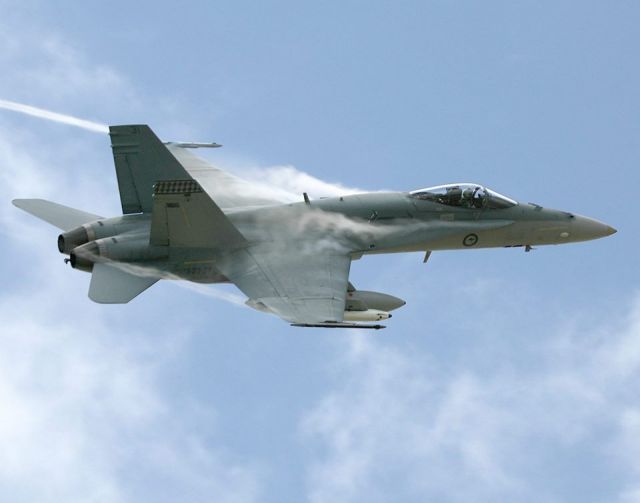Breaking news
Australia signals readiness to help U.S. in Iraq air strikes.
| a | |||
Defence & Security News - Australia |
|||
| Thursday, August 28, 2014 11:03 AM | |||
| Australia signals readiness to help U.S. in Iraq air strikes | |||
| Australia has signaled willingness to contribute its Super Hornet fighter jets to U.S.- led air strikes in Iraq, with the defense force "at a high state of readiness." Defense Minister David Johnston outlined the position on Wednesday night, saying Australia was ready to assist the U.S. with further airstrikes targeting ISIS terrorists in Iraq. | |||
 RAAF's FA/18 Hornet at Ex Pitch Black 14 (Source : RAAF) |
|||
Johnston
said the Australian defense force had started to develop its readiness
after the emergence of "beheadings, mass executions, genocidal villages
wiped out, ethnic cleansing."
He said the U.S. was already carrying out air strikes in Iraq with the purpose of "preserving civilian lives." "Now, if this situation continues, I think it's incumbent upon nations that have a strong, clear and understandable reputation and sense of right and wrong to do the right thing here and assist a stable Iraqi government if we can get one to defend itself and to retake and assert some reasonable level of legitimate control over these villages," he said. Johnston said Australia's relationship with the U.S. was "very close" and their discussions "would touch on these atrocities, the potential genocide, the mass murders and all of the things that we 're seeing unfolding in Iraq at the moment that give us cause for serious concern." He made the comments on Wednesday night following a report in the New York Times that indicated U.S. President Barack Obama had begun to mobilize a broad coalition of allies behind potential American military action in Syria and was moving towards expanded air strikes in Iraq. The report cited U.S. administration officials as saying they expected Britain and Australia would be willing to join the U.S. in an air campaign. Australia has so far only contributed humanitarian aid to Iraq, with troops dropping energy biscuits and water to trapped refugees. But Johnston told the ABC that Australia might do more: "We're at a high state of readiness. We're at a good state of readiness at all times...," Johnston said. The minister added Australia has a "lot of capability" at its " fingertips" including the "incredibly capable Super Hornets." "They're exactly what flies off U.S. aircraft carriers. Now, that's an obvious first port of call were we to consider it necessary to participate with our friends and our ally," he said. But he said both the U.S. and Australia wanted to see a "more inclusive government in Baghdad" before committing to any large scale military mission. "Secondly, we will need an invitation from the Iraqi government. We'll need to settle rules of engagement. We'll need to do a whole host of things before we start talking about any form of deployment," he said. The Labor opposition has requested a briefing on the latest developments, while the Greens argued military engagement in Iraq could "make the situation worse" in the Middle East country. Labor's foreign affairs spokeswoman, Tanya Plibersek, acknowledged the international community had a responsibility to protect against genocide, but said Australia must be thoughtful and calm when weighing up any potential involvement. "If there is a potential genocide the international community has a responsibility to protect, it does look as though there are potential genocides in northern Iraq but any action Australia might take is something we need to be very thoughtful and very calm about," she said. Plibersek said the U.S.-led war that began in 2003 had been " very damaging" for Iraq, and the government must be cautious not to do more harm than good. |
|||



















